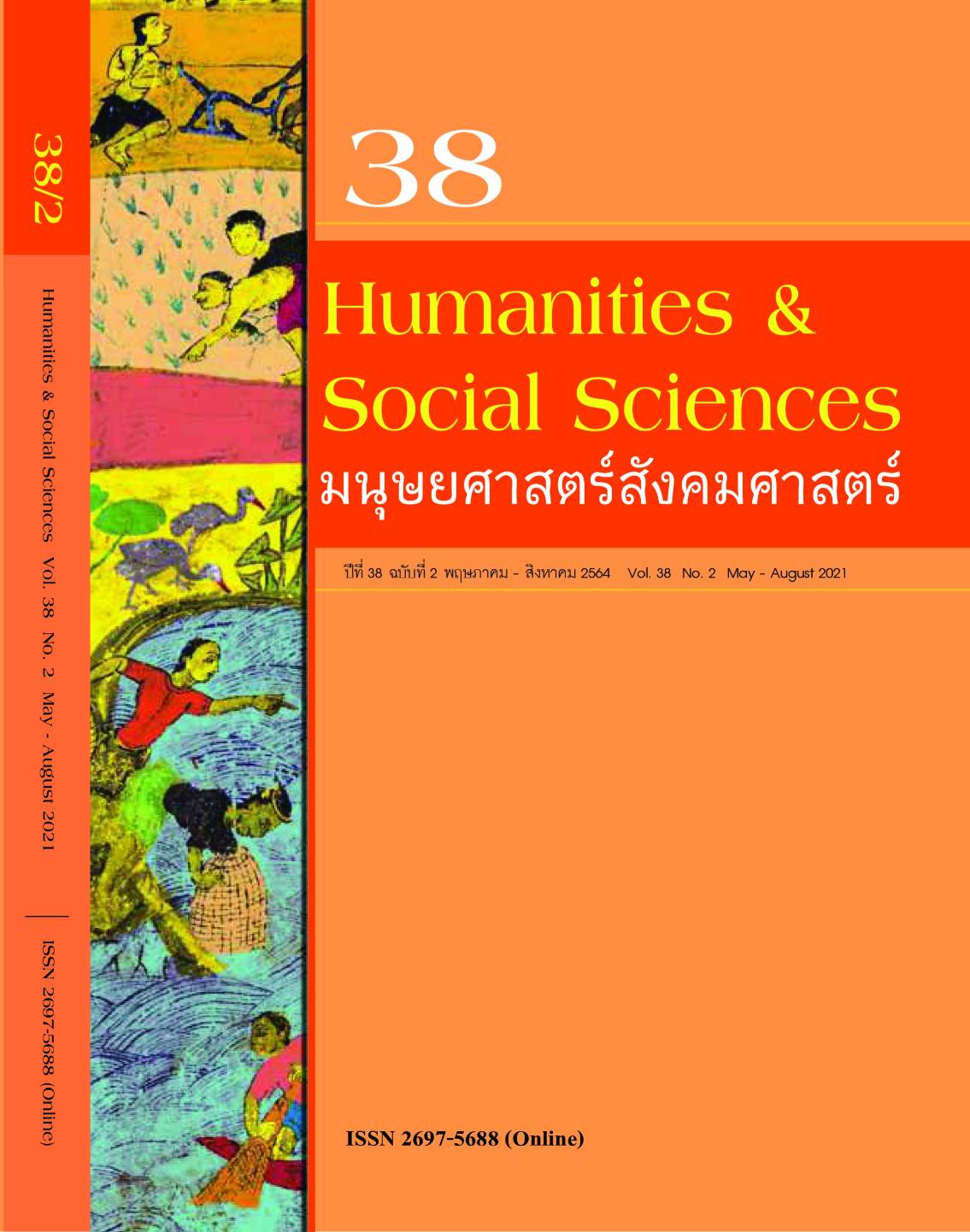รูปแบบการบริหารธุรกิจฟู้ดทรัคให้ประสบความสำเร็จภายใต้พลวัตแห่งการเปลี่ยนแปลง ของผู้ประกอบการเจนเนอเรชันวาย
Successful Food Truck's Business Model of Generation Y Entrepreneur under the Dynamic Changes
Keywords:
food truck, business model, key success factors, dynamic changes, entrepreneurAbstract
Abstract
The objectives of this research were: 1) to analyze the success factors in operating the food truck business under the dynamic changes of generation Y entrepreneurs through administrative factors and 2) to explore the successful food truck's business model of generation Y entrepreneurs under the dynamic changes. This qualitative study has been conducted by semi-structured interviews of ten generation Y entrepreneurs in the food truck business around Bangkok along with participatory observation. The criterion sampling was applied; content analysis was utilized and resulted in descriptive writing.
The findings revealed that 1) administrative factors which affect success in operating the food truck business of generation Y entrepreneurs under the dynamic changes were 5S, including strategy, system, staff, skill, and style. 2) Successful food truck business model of generation Y entrepreneur under the dynamic changes consisted of those 5S administrative factors together with three newly-discovered factors: inspiration, flexibility, and network. Thus, this model was named “5S+FIN”. The findings will benefit current and potential food truck entrepreneurs in terms of successful business planning. Related organizations can also apply these findings in policy-making to support Startup and SME entrepreneurs to be competitive and successful in the market.
Keywords: food truck, business model, key success factors, dynamic changes, entrepreneur
References
กรมส่งเสริมอุตสาหกรรม. (2550). คุณลักษณะของการเป็นผู้ประกอบการที่ประสบความสำเร็จ. สืบค้นเมื่อวันที่ 31 มกราคม 2560, จาก https://www.ryt9.com/s/ryt9/112106.
กองข้อมูลธุรกิจ กรมพัฒนาธุรกิจการค้า. (2558). ธุรกิจเด่นประจำเดือนมิถุนายน 2558 ธุรกิจภัตตาคาร/ร้านอาหาร. สืบค้นเมื่อวันที่ 5 มกราคม 2559, จาก http://www.dbd.go.th/download/document_file/Statisic/2558/
T26_201506.pdf.
โกศล จิตวิรัตน์. (2551). กฎ 8 ประการในการสร้างเสริมศักยภาพทางการแข่งขันของผู้ประกอบการภายใต้แนวโน้มการเปลี่ยนแปลงแบบพลวัต (Dynamic). วารสาร มทร.อีสาน, 1(1), 96-101.
คเชนทร หวยหงษทอง. (2560). การสื่อสารทางการตลาดแบบบูรณาการ แรงจูงใจและการใสใจสุขภาพที่มีผลตอการตัดสินใจซื้ออาหารจากฟูดทรัคของผูบริโภคในเขตกรุงเทพมหานคร. การค้นคว้าอิสระปริญญามหาบัณฑิต, มหาวิทยาลัยกรุงเทพ.
ชาย โพธิสิตา. (2550). ศาสตร์และศิลป์แห่งการวิจัยเชิงคุณภาพ. (พิมพ์ครั้งที่ 3). กรุงเทพฯ: อัมรินทร์พริ้นติ้งแอนด์พับลิชชิ่ง.
ชุติมา หวังเบ็ญหมัด และธนัชชา บินดุเหล็ม. (2557). ปัจจัยแห่งความสำเร็จของการประกอบการธุรกิจขนาดกลางและขนาดย่อม (SMEs) ในอำเภอหาดใหญ่ จังหวัดสงขลา. วารสารวิทยาการจัดการ มหาวิทยาลัยราชภัฏสุราษฎร์ธานี, 1(1), 109-124.
บุษกร วัชรศรีโรจน์. (2548). การบริหารความเปลี่ยนแปลง. กรุงเทพฯ: สำนักงานคณะกรรมการพัฒนาระบบราชการ.
ปิยะธิดา อินทรโชติ. (2553). บทบาทของกระบวนการทำงานในการบริหารการเปลี่ยนแปลงและวัฒนธรรมองค์กรในการบริหารการเปลี่ยนแปลงของวิสาหกิจขนาดกลางและขนาดย่อม. ปริญญานิพนธ์ปริญญามหาบัณฑิต, มหาวิทยาลัยเทคโนโลยีพระจอมเกล้าธนบุรี.
พงศกร บุญพรัด และ อภิวรรตน์ กรมเมือง. (2560). การตัดสินใจใช้บริการร้านอาหารประเภทฟู้ดทรักของผู้บริโภคในเขตกรุงเทพมหานคร. วารสารการบริหารและการจัดการ สถาบันเทคโนโลยีพระจอมเกล้าเจ้าคุณทหารลาดกระบัง, 7(1), 1-14.
พิบูลย์ ทีปะปาล. (2552). การเป็นผู้ประกอบการ. กรุงเทพฯ: อมรการพิมพ์.
ภักดี เมฆจำรูญ. (2551). การบริหารการเปลี่ยนแปลง. (พิมพ์ครั้งที่ 3). กรุงเทพฯ : เอ็กซเปอร์เน็ท.
มีแสน แก่นชูวงศ์. (2558). การศึกษาการดำเนินธุรกิจวิสาหกิจขนาดกลางและขนาดย่อมที่สร้างคุณค่าเพิ่ม. วารสารบรรณศาสตร์ มศว, 8(2), 42-55.
เมทินี สิริสาร. (2554). ความคาดหวังเกี่ยวกับการทำงานร่วมกันของหัวหน้างานกับลูกน้องรุ่นใหม่. ภาควิชาสังคมสงเคราะห์ศาสตร์ คณะสังคมสงเคราะห์ศาสตร์ มหาวิทยาลัยธรรมศาสตร์.
ศิริจรรยา เครือวิริยะพันธ์. (2559). Food Truck ในประเทศไทย: กระแสแฟชั่นหรือแนวโน้มใหม่. วารสารเกษตรพระจอมเกล้า, 34(1), 109-117.
ศิริพงศ์ รักใหม่. (2552). ปัจจัยที่ส่งผลต่อความสำเร็จของผู้ประกอบการร้านอาหารและภัตตาคาร: กรณีศึกษาผู้ประกอบการร้านอาหารและภัตตาคารในเขตประเวศและพระโขนง กรุงเทพมหานคร. วารสารวิทยาลัยดุสิตธานี, 3(1), 1-24.
สถาบันเอนเทรนนิ่ง. (2559). คน Gen Y คืออะไร ทำไมองค์กรต่างๆ ควรต้องเจียระไนคน Gen Y. สืบค้นเมื่อวันที่ 23 สิงหาคม 2559, จาก http://www.entraining.net/article-paradorn_gen-y.php
สมาคมผู้ประกอบการธุรกิจขนาดกลางและขนาดย่อมไทย. (2559). เผยธุรกิจ 3 มาแรงปี 2559 พร้อมแนะแนวทางผู้ประกอบการยุคใหม่. สืบค้นเมื่อวันที่ 8 กันยายน 2559, จาก http://www.tasme.or.th/article_inside.php?article_id=36.
สัณห์จุฑา จํารูญวัฒน์. (2559). ปัจจัยที่ส่งผลต่อการเลือกใช้บริการร้านอาหารประเภทฟู้ดทรัก (Food Truck) ของผู้บริโภคในเขตกรุงเทพมหานคร. การค้นคว้าอิสระปริญญามหาบัณฑิต, มหาวิทยาลัยธรรมศาสตร์.
สุชาติ ไตรภพสกุล. (2559). แนวโน้มธุรกิจ STARTUP 2559. สืบค้นเมื่อวันที่ 19 กันยายน 2559, จากhttp://www.maruey.com/article/contentinjournal0009.html.
สุนันทา เลาหนันท์. (2551). การพัฒนาองค์การ. กรุงเทพฯ: วิรัตน์ เอ็ดดูเคชั่น.
Barney, J. (1991). Firm Resources and Sustained Competitive Advantage. Journal of Management, 17(1), 99-120.
Fahlevi, M., Zuhri, S., Parashakit, R. & Ekhsan, M. (2019). Leadership Styles of Food Truck Businesses. Journal of Research in Business, Economics and Management, 13(2), 2437-2442.
Frederick, H., Kuratko, D. & Hodgetts, R. (2007). Entrepreneurship: Theory, Process and Practice. (Asia pacific edition). Thomson Learning.
Guest, G., Bunce, A., & Johnson, L. (2006). How Many Interviews are enough? An Experiment with Data Saturation and Variability. Field Methods, 18(1), 59-82.
Hawk, Z. (2013). Gourmet Food Trucks: An Ethnographic Examination of Orlando’s Food Truck Scene. Master degree, University of Central Florida.
Lincoln, Y. S., & Guba, E. G. (1985). Naturalistic Inquiry. Sage.
Loomis, J. M. (2013). Moveable Feasts: Locating Food Trucks in the Cultural Economy. Master degree, University of Kentucky.
Moriarty, L. (2019). An Empirical Study of the Emergence and Policy Implications of the Food Truck Industry in the Research Triangle Region. Retrieved January 20, 2019, from https://cdr.lib.unc.edu/concern/masters_papers/7p88cj21h
Patton, M. Q. (1990). Qualitative Evaluation and Research Methods (2nd ed.). London: Sage.
Peñate, P. T. (2015). An Innovative Food Truck Chain, Strategic Planning Inspired from the Lean Start Up Methodology. ISCTE - Lisbon University Institute.
Robbins, S.P. & Coulter M. (2008). Management. Chicago: Pearson Prentice Hall.
Seo, J. (2013). The New Cool Kid on the Block: How Food Trucks Evolved from Roach Coaches to Cultural Phenomena. Retrieved January 23, 2020, from http://www.huffingtonpost.com/jane-seo/food-trucks_b_3721730.html
Shane, S. & Venkataraman, S. (2000). The Promise of Entrepreneurship as a Field of Research. The Academy of Management Review, 25(1), 217-226.
Strand, K. (2015). Food Truck Frenzy: An Analysis of the Gourmet Food Truck in Philadelphia. Retrieved Febuary 12, 2020, from https://scholarship.tricolib.brynmawr.edu/handle/10066/16515
Tichy, N.M. & Devanna, M.A. (1986). The Transformation Leader. New York: John Wiley & Son.
Waterman Jr, R. H., Peters, T. J., & Phillips, J. R. (1980). Structure is not Organization. Business horizons, 23(3), 14-26.



